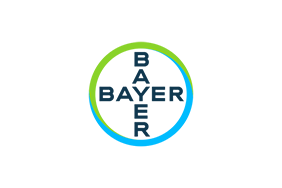Bayer to Host STEM Education Diversity Forum for Business Leaders on the West Coast
Published 11-06-08
Submitted by Bayer
BERKELEY, CA. - November 6, 2008 - Bayer Corporation will host a STEM Education Diversity Forum in December, the second such forum the company has held in the last three years. (STEM = science, technology, engineering and mathematics).
The purpose of the forum is to encourage and help business executives from the various STEM industries - biotechnology, information technology, engineering and beyond - to get involved and support STEM education programs in order to build a strong and diverse national STEM pipeline, the feeder for our future workforce.
The forum, part of Bayer's award-winning Making Science Make Sense(R) initiative, will be held on Thursday, December 11, 2008, at the Hotel Nikko in San Francisco. Bayer is holding the forum as a public service; there is no charge to attend.
Titled "Bridging the Diversity Gap: Introducing STEM Industries to K-12 Best Practice Programs," the forum is an outgrowth of a recent survey commissioned by Bayer Corporation. The survey found wide agreement among the Fortune 1000 STEM CEOs polled that they and their companies have a responsibility to support pre-college, STEM-education programs that are developing the next generation of innovators, particularly those who have traditionally been underrepresented in STEM.
Thus, the forum will showcase for these executives an array of best-practice, elementary and secondary education programs that are helping all students - especially girls, African-Americans, American Indians and Hispanics - achieve in STEM subjects.
In addition, the forum will offer executives practical advice about creating their own business-education partnerships. They will be urged to support these and/or other exemplary programs that are closing achievement gaps by helping them to scale-up or replicate them in their local communities.
Dr. Mae C. Jemison will act as moderator. In addition to serving as Bayer’s longtime national Making Science Make Sense spokesperson, she is the nation's first African-American female astronaut, a chemical engineer, physician and the CEO of an emerging STEM company. She will lead the forum's two morning panels, Best Practice Elementary STEM Education Programs and Best Practice Secondary STEM Education Programs, and participate in an afternoon panel about developing an action plan for moving STEM education forward and creating industry-education partnerships.
"Innovation has long been at the heart of America's global competitiveness, our economic prosperity, our quality of life and our national security," explained Greg Babe, President and CEO, Bayer Corporation. "In light of the enormous challenges the United States is facing today, what will keep this country prosperous and competitive are the scientific and technological innovations we make within the STEM fields "“ fields that are at risk today."
According to the latest Bayer Facts of Science Education survey which polled CEOs and other C-suite executives heading America's Fortune 1000 STEM companies, more than half of the executives said their companies are currently experiencing a shortage of American-trained STEM talent, and two-thirds report that their international rivals, having greater access to STEM talent, are gaining a competitive advantage.
The forum and the 2009 publication of a second volume of Planting the Seeds for a Diverse U.S. STEM Pipeline: A Compendium of Best Practice K-12 STEM Education Programs are both designed to assist companies in their efforts to foster a diverse STEM pipeline and bring more women, African-Americans, American Indians and Hispanics into STEM fields.
Bayer is currently seeking nominations for best practice K-12 STEM education programs to profile in the second volume of the compendium. Directors of these education programs are invited to visit Bayer's Web site www.BayerUS.com/MSMS to download and complete a submission form.
About Making Science Make Sense(R)
Making Science Make Sense (MSMS) is Bayer's company-wide initiative that advances science literacy through hands-on, inquiry-based science education, employee volunteerism and a public education campaign. Currently, 12 Bayer sites around the country operate local MSMS programs, which together represent a national volunteer corps of more than 1,000 employees. Three components of MSMS are the upcoming STEM Education Diversity Forum, the Compendium and The Bayer Facts of Science Education survey series, Bayer’s ongoing annual public opinion research project.
About Bayer Corporation
Bayer Corporation, headquartered in Pittsburgh, is a subsidiary of Bayer AG, an international health care, nutrition and high-tech materials group based in Leverkusen, Germany. In North America, Bayer had 2007 net sales of 8.1 billion euros and employed 16,800 at year-end. Bayer’s three subgroups, Bayer HealthCare, Bayer CropScience and Bayer MaterialScience, improve people’s lives through a broad range of essential products that help diagnose, prevent and treat diseases; protect crops and enhance yields; and advance automobile safety and durability.

Bayer
Bayer
Bayer: Science For A Better Life
Bayer is a global enterprise with core competencies in the Life Science fields of health care and agriculture. Its products and services are designed to benefit people and improve their quality of life. At the same time, the Group aims to create value through innovation, growth and high earning power. Bayer is committed to the principles of sustainable development and to its social and ethical responsibilities as a corporate citizen. In fiscal 2015, the Group employed around 117,000 people and had sales of EUR 46.3 billion. Capital expenditures amounted to EUR 2.6 billion, R&D expenses to EUR 4.3billion. These figures include those for the high-tech polymers business, which was floated on the stock market as an independent company named Covestro on October 6, 2015. For more information, go to www.bayer.com.
More from Bayer

